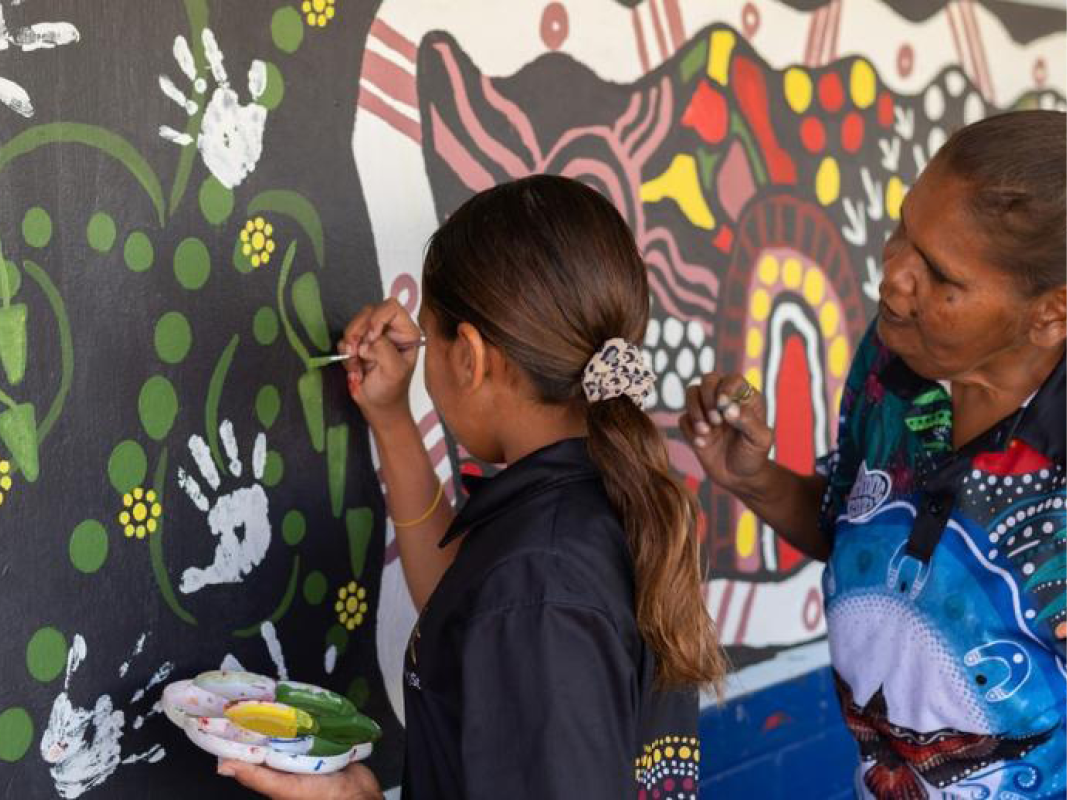A school-based engagement program for Aboriginal and Torres Strait Islander girls and young women is working to develop confidence, cultural identity, and positive relationships.
Shooting Stars is an education program that was established in 2014 as a pilot program and now operates across 22 sites in WA and SA.
The program offers advocacy, support, opportunities and the tools and resources that open the door to self-determination, empowering each young woman to reach her full potential.
Program staff, most of whom are Aboriginal women, support Shooting Stars participants throughout their schooling.
Executive Officer Helen Ockerby provided an overview of the program for Port Hedland Industries Council’s November Community Industry Forum.
“The purpose of our program Shooting Stars is to empower people and communities, stay true to the Shooting Stars way, and challenge the status quo,” Ms Ockerby said.
“In Port Hedland there are 211 Aboriginal and Torres Strait islander students registered at the school, and we have 110 engaged with our program.”
Shooting Stars has developed a range of individual programs, including reward activities, health and well-being sessions, advocacy and support and engagement activities to keep young people within the school or educational setting to ensure they can complete their studies or connect with other opportunities in the community.
“There’s collaboration and community engagement, and we try to partner with people on the ground to help deliver our programs,” Ms Ockerby said.
“We want to see empowered Indigenous women and to have women in leadership positions and role modelling and we do that through our program from the top down.
“From a governance perspective, (our) board is chaired by Auntie Glenda Kickett, an Aboriginal woman, and the vast majority of our board are Aboriginal people, because if you can’t see it, you can’t be it.
“I’m an Aboriginal woman in the executive officer role, as an example for young people that you can sit in these positions as well and help shape communities.
“We want to grow positive attitudes and values through the program but also as an organisation, build strength through our cultural identity, be proud of who we are and where we come from and embed that across the board with our programming, connecting to community and culture as well through leadership opportunities.
“We definitely want to improve school attendance. We work with schools closely and collaboratively. The way we evaluate our program to tell our story is also through attendance data that we collect, and case studies that we do on individual young people.”
Information on students’ progress is collected through yarning circles and used to find common themes and barriers and to alter programs in response.
A series of enrichment programs has been developed using information gathered from yarning circles.
A Pathways program is targeted at year 10, 11, and 12 students and aims to prepare and provide support to participants for future post-school pathway opportunities, to empower them to make informed decisions and work toward their goals to ensure a positive transition from school to their post-school pathway, including employment, university or further study and training.
Shooting Stars also runs junior and senior leadership camps.
“This year we’ve had our first junior leadership camp out on country out at Laverton. We took 50 young people and staff out there,” Ms Ockerby said.
“Just to learn more on country or have an on-country learning experience with the mob out there was beneficial for some of our young people who might not be as connected to cultural community.”
Attendance levels and standards of behaviour and community involvement must be achieved for participants to be considered for involvement in the leadership camps, but each person is assessed individually.
An Art with the Stars enrichment program encourages young people to engage with local artists, including in drama, music, or other activities.
“Young people learn how to connect with culture and storytelling but also transition into what that looks like for the broader community, to be proud of their work, talk about it and showcase it,” she said.
A Deadly Minds Matter program tackles behaviour and self-regulation and seeks to improve social and emotional wellbeing.
“It really encourages young people to work through some of their own social and emotional well-being skills and what we can do together to have some strategies around some difficult times.”


